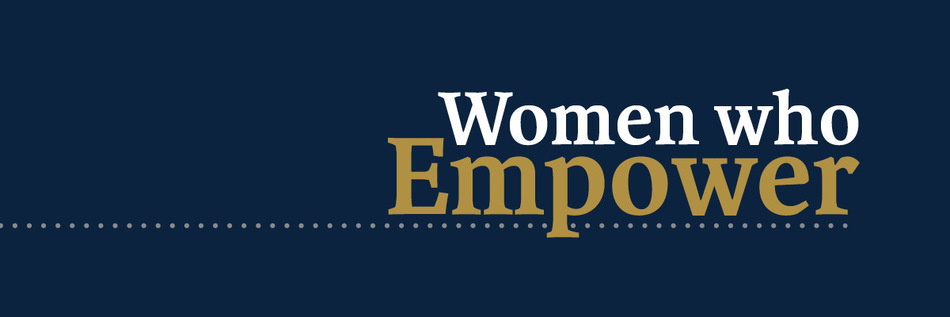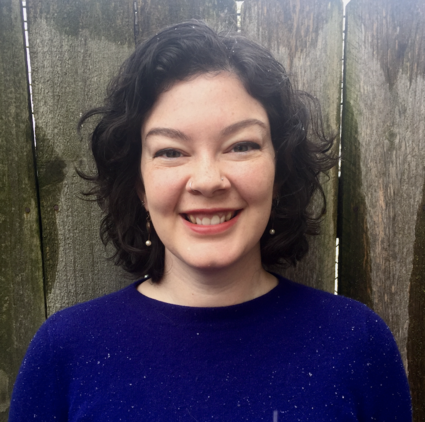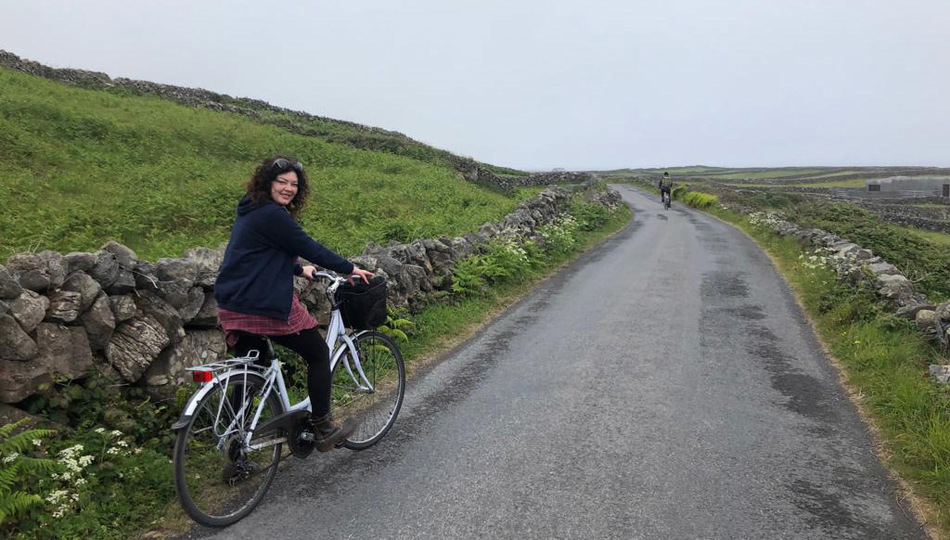
This story is part of Notre Dame International's series titled "Women Who Empower."

Though she loved her time at Notre Dame, Beth Kellenberg Klein, then Neiman (‘10), remembers feeling a little stifled on campus. She was born and raised in South Bend, Indiana. She attended college with some of her peers from high school and her dad even worked on campus. For Klein, studying abroad in Dublin was her first opportunity to forge her own identity. She was not simply seeking to burst the “Notre Dame bubble”—as many students who venture abroad are—but to burst her hometown bubble, too.
While studying political science and anthropology at University College Dublin in the Spring of 2009, Klein would become a member of the first cohort to participate in the Community Based Learning program—a joint initiative between the Notre Dame Dublin Global Gateway and the Center for Social Concerns designed to promote a more genuine student engagement with contemporary social issues in Ireland through placements in a variety of community organizations across Dublin.
Klein was placed as a tutor for Sudanese, Afghan, and Chinese refugees as they navigated a new language and culture in a country that was having an identity crisis itself. Ireland’s political environment and stagnant economy had, for much of its history, produced more emigration than immigration until the country came roaring into the 21st century on the back of the Celtic Tiger economic boom.
“It seemed Ireland was still grappling with what it meant to welcome people, not just wave goodbye,” says Klein, recalling her perception of the national sentiment at the time.
Klein came to the conclusion that her service was not just tutoring or teaching but an opportunity for her to listen and to learn.
“In my placement in Dublin, I realized that nothing I could learn from a book or in a lecture would feel as real or as urgent as it does when talking with individuals who could tell me their migration experience, their personal story,” she remembers.
“Through these conversations, I finally understood this is not just about policy. This is about lives, and not abstract or distant lives, but the lives of those I was sitting down with, having a cup of tea and having ‘the chat,’ as the Irish say.”
Since graduating from Notre Dame in 2010, Klein has worked extensively with community based organizations at every step of the migrant and refugee experience, from direct humanitarian aid in crisis refugee camps—where needs are urgent, status is critical, and support is about survival—to airport arrivals into the United States, housing placements, college and career guidance, and adjustment counseling for those who have resettled and are grappling with what comes next—and the guilt that can often accompany their newfound stability.
Her humanitarian passions have guided her path from South Bend to Dublin, Cleveland to Chicago, Thailand to France.
“In Dublin, I used to sit and talk to the O’Connell House staff and say, ‘I don’t know what I want to do with my life,’” Klein chuckles as she recalls the worries of her 20-year-old-self. “Eimear, the assistant director at the Dublin Global Gateway, gave me the best advice, and I eventually just started saying ‘yes’ to opportunities that aligned with my values.”
When asked what the word empower means to her, Klein is humble.
"I don’t think empowering is something I do in my work, or at least it is not something I have sought out to do explicitly,” she says. “What I have seen, time and again, since that very first tutoring job in Dublin, is that if you simply listen, support, and most importantly, provide a welcoming space, people will grow and learn to empower themselves.”

Klein saw this self-empowerment with many of the women she has worked with in her expansive career. The experience of migrant and refugee women can be uniquely lonely. As men, who often have better English, find work, newly resettled women can feel especially isolated at home with care duties.
“In the refugee camp, they at least had community. They had help and they had someone to talk to,” she remarks.
Klein asserts that if spaces for migrant, refugee, and resettled women are intentionally carved out, they will blossom. She remembers bringing one of the first Rohingya refugees in Chicago, a mother with four children under four, to a women’s health week event where she made her first new friends, despite having no English. After they gave her leftovers from the first day’s event to take home to her family, she unexpectedly came back the next day with even more food, having turned the dishes into new curries for day two, and showing her new community love through cooking.
“You don’t need to speak the same language to understand a smiling face and a warm environment, to know someone cares about you and your family, to hear that they know your names,” she says.
With a Master's in Social Service Administration at the University of Chicago and over ten years of field experience under her belt, Klein is now pursuing a PhD in social work at Boston College, researching best practices in preventing non-profit and humanitarian staff burnout.
Her research is inspired by her experience on a field placement in the notorious “Calais Jungle,” a largely volunteer run refugee camp with, at its height in 2015 and 2016, over 8,000 inhabitants in Calais, France. The camp sat on a former landfill site where displaced people—mainly those who were fleeing international conflict zones like Afghanistan, Darfur, Iraq, Somalia and Syria—waited in limbo on the edge of the continent for entry into the United Kingdom or to be granted asylum status in France.
Having previously worked with resettled migrants and refugees in places like Cleveland and Chicago and with college-bound refugee students in Thailand, Klein recalls the shock of her first experience in such an immediate emergency relief setting.
“I wondered how anyone could actually make a difference in such an intense context. I thought, ‘I’m not a politician deciding whether this border is open or closed. I’m not an immigration lawyer. What can I even do?’” she asked herself.
The volunteers alongside Klein were not just burnt out—the unfortunate but almost inevitable fate of many humanitarian workers; the volunteers of the Calais Jungle were traumatized. She started to rethink her definitions of service and caregiving and saw how little attention was paid to the staff of non-profit and humanitarian organizations.
“It’s cliche, but you really can’t pour from an empty cup,” she says. “When you see suffering everyday, and you can’t see the political context changing, your passion can often turn into anger, and burn out, and then you can’t even advocate well for that which you were so passionate about in the first place.”
Though Klein says she has wandered through her career, her passionate spirit and strong values are apparent in all of the opportunities she has chosen to say "yes" to. For now, her focus has shifted from communities to caregivers, but the same intuition guides Klein in her doctoral research as that which guided her at that very first placement tutoring refugees in Dublin. She creates space, she listens, she counsels, and though she may not intend to, she empowers.
